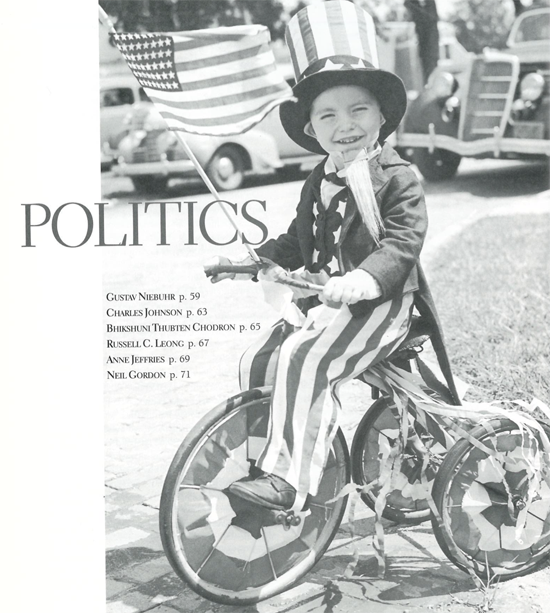
“I know not what course others may take; but as for me, give me liberty or give me death!” Patrick Henry made his famous declaration at the Second Virginia Convention in 1775 and it was with similar conviction that the Buddha sat down beneath the fig tree in Bodhgaya 2,500 years ago, vowing to remain until he had attained liberation. But while
Henry’s liberty was one that required radical political engagement, the Buddha sought a liberation of the mind. Shakyamuni spoke of the human condition—suffering, the cause and cessation of suffering, and the fruition of the path—but he was not involved in politics, at least not as we understand it in a democracy. In the monarchies of Brahmanic India, decisions of rule were a distant reality to the great majority of the population.
Fortunately or unfortunately, depending on one’s perspective, we are not afforded the luxury of such distance. We are asked, as citizens of a country whose very foundation rests upon participatory democracy, to engage in the political process, to offer our opinion, to vote. This raises difficult questions. Do Buddhists have political responsibilities? Whether you are a Democrat or a Republican, a liberal or a conservative—can one vote from a Buddhist perspective of nonattachment? When so much is seemingly at stake, can one afford not to vote?
With the presidential election race upon us, Tricycle invited some writers to weigh in on this topic. From the varied responses it becomes clear that political involvement can be messy stuff, certainly no less so when Buddhists are involved. As both Gustav Niebuhr and Russell Leong argue, the recent Democratic fundraising scandal at Hsi Lai Temple in Los Angeles provides ample testimony to this fact.
In this special section, Tricycle enters into a dialogue that, according to Anne Jeffries, began as early as the sixties, with the first wave of American converts to Buddhism. It is a discussion that will, no doubt, continue into the future, as American Buddhists confront what it means to live in America.